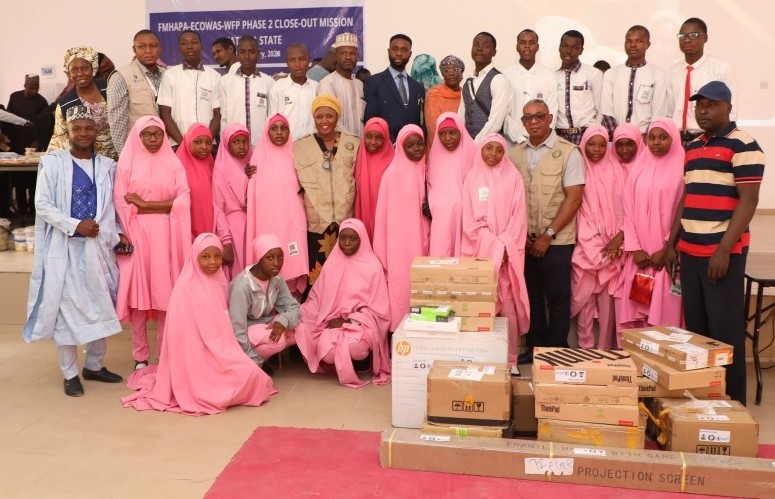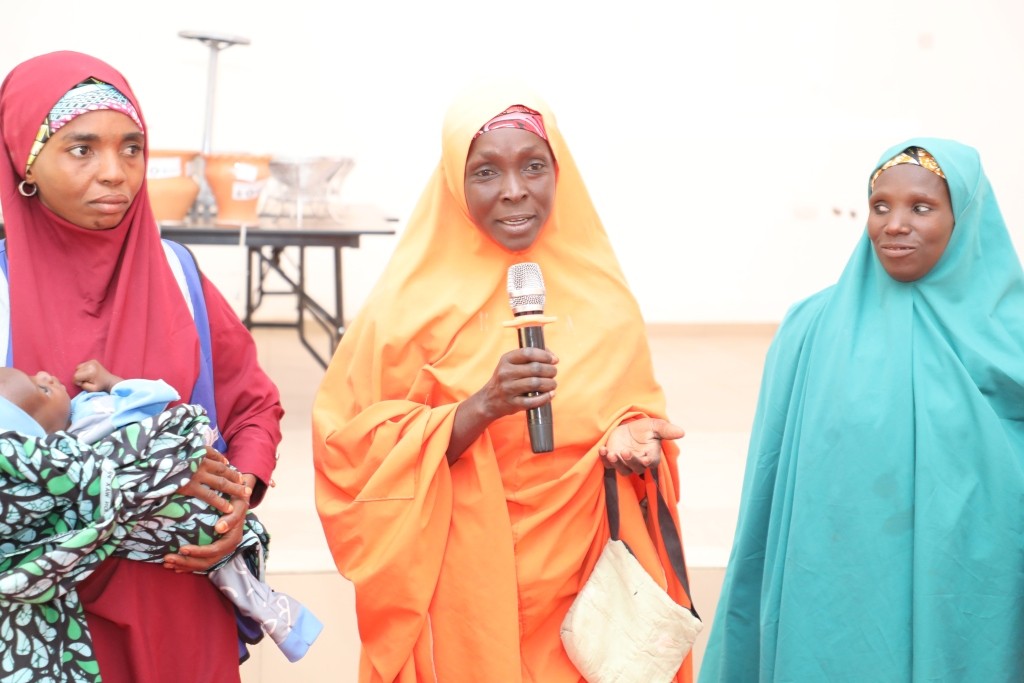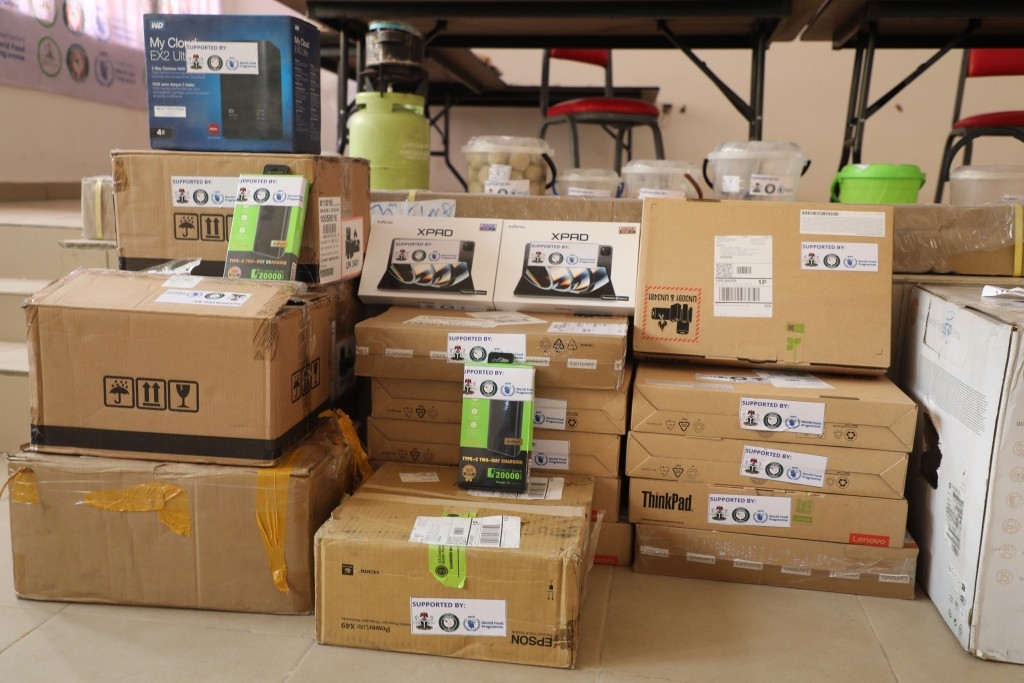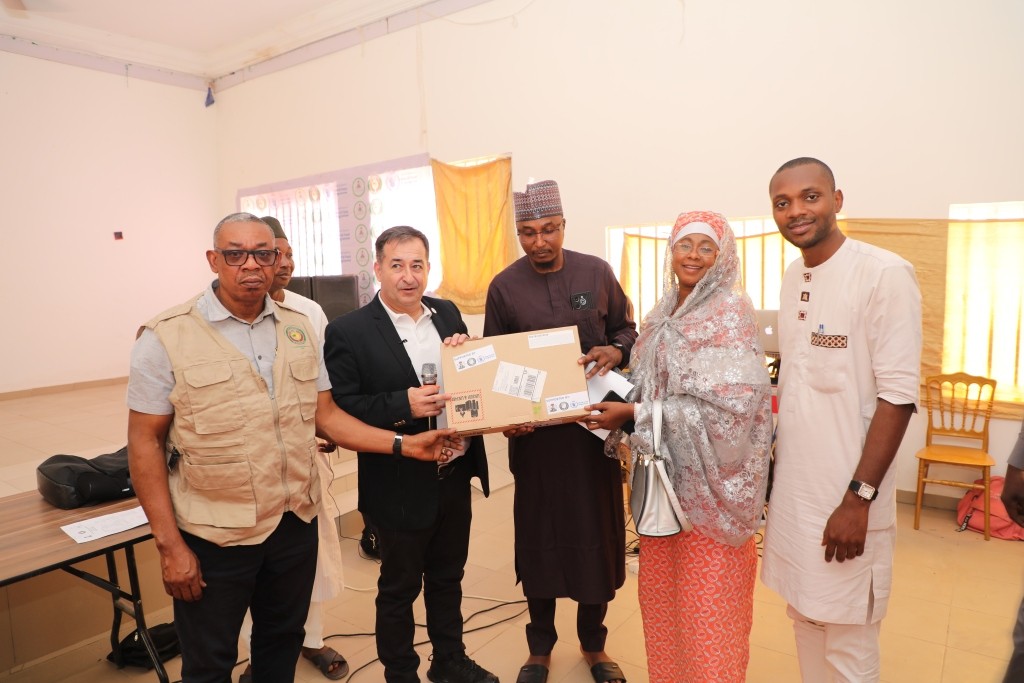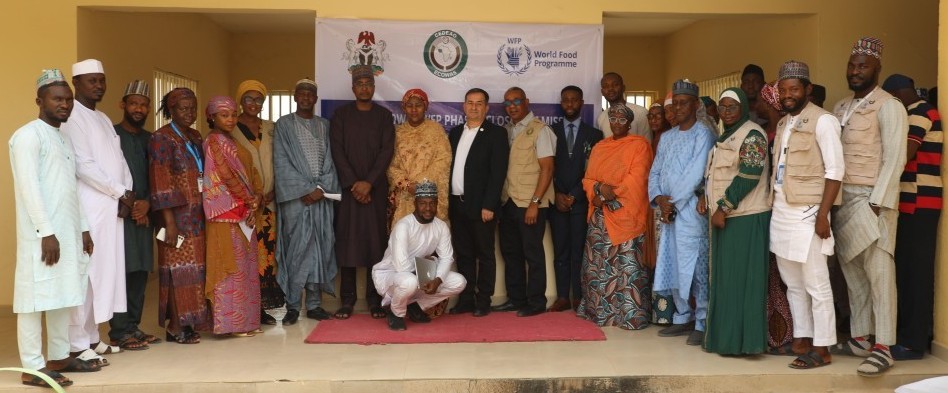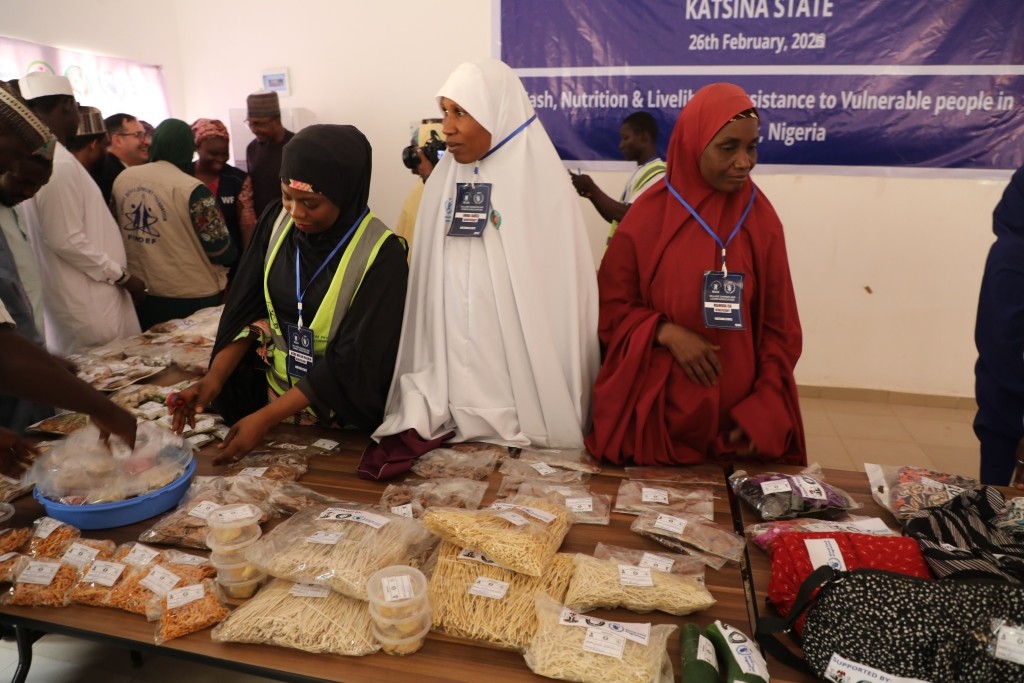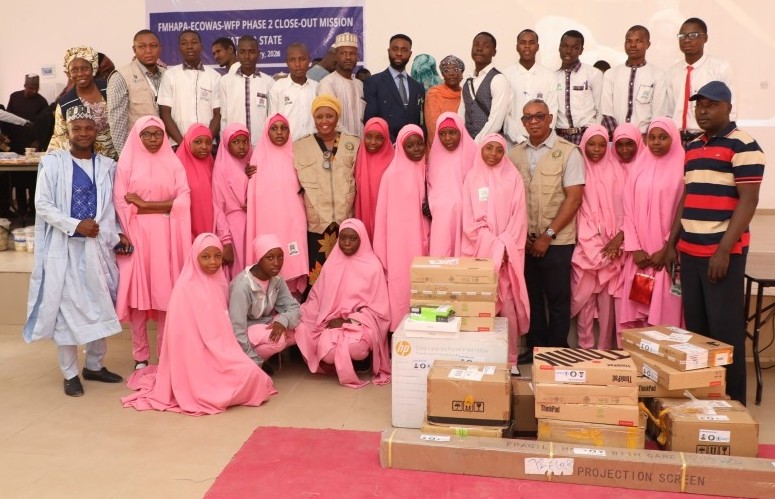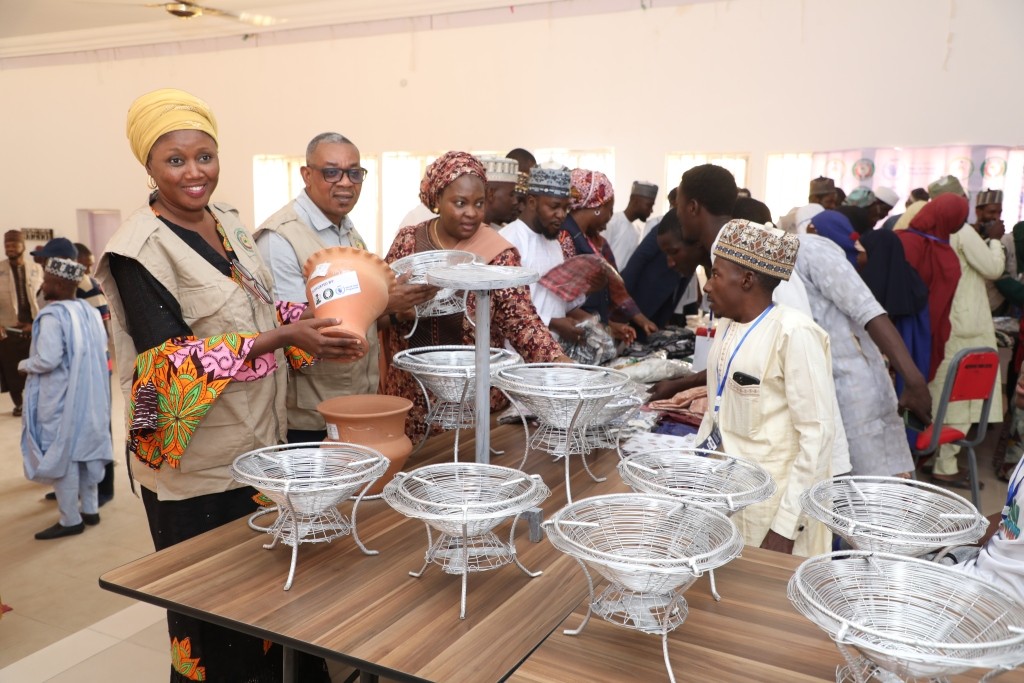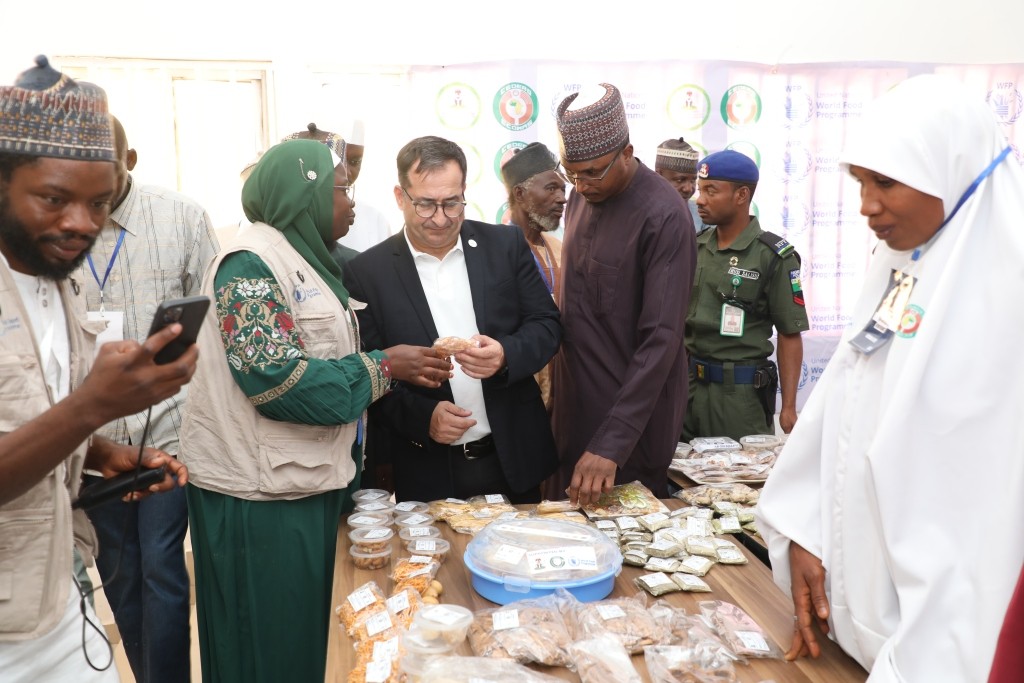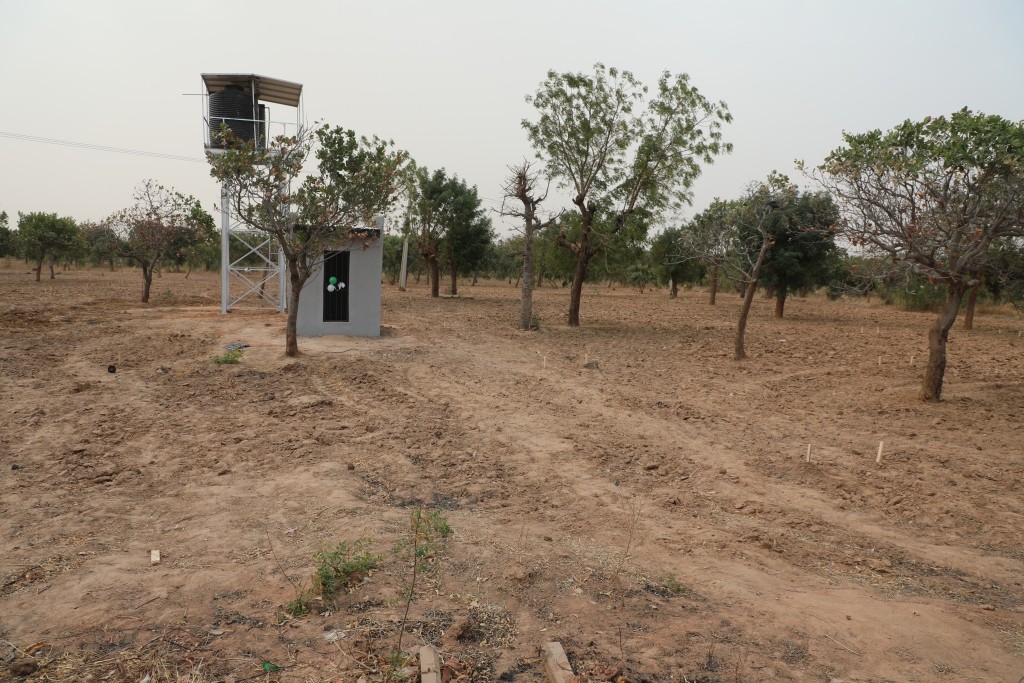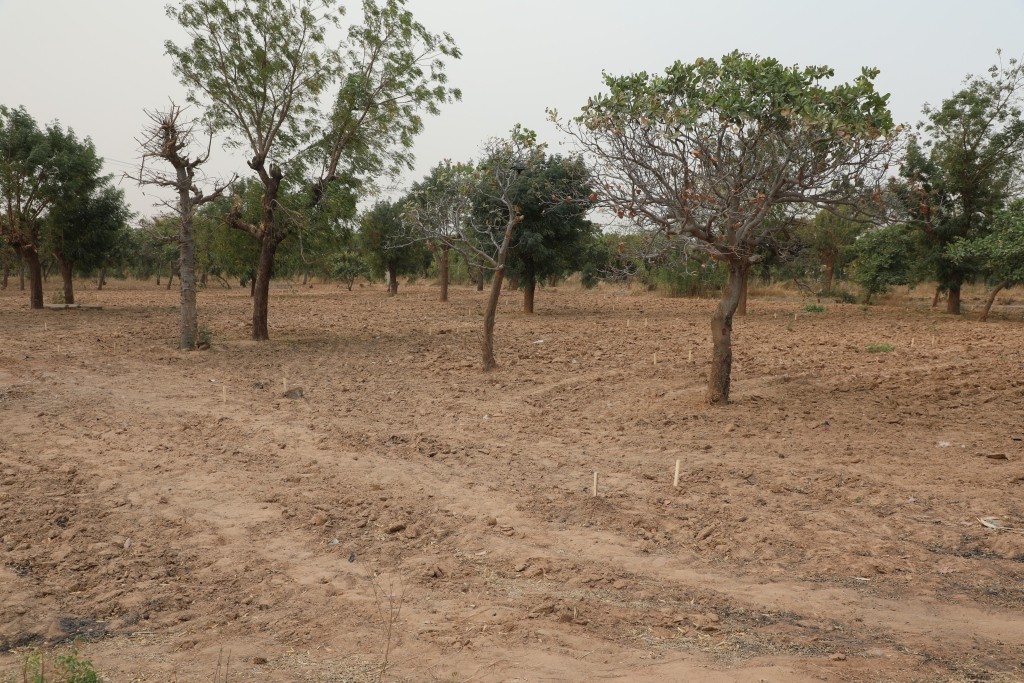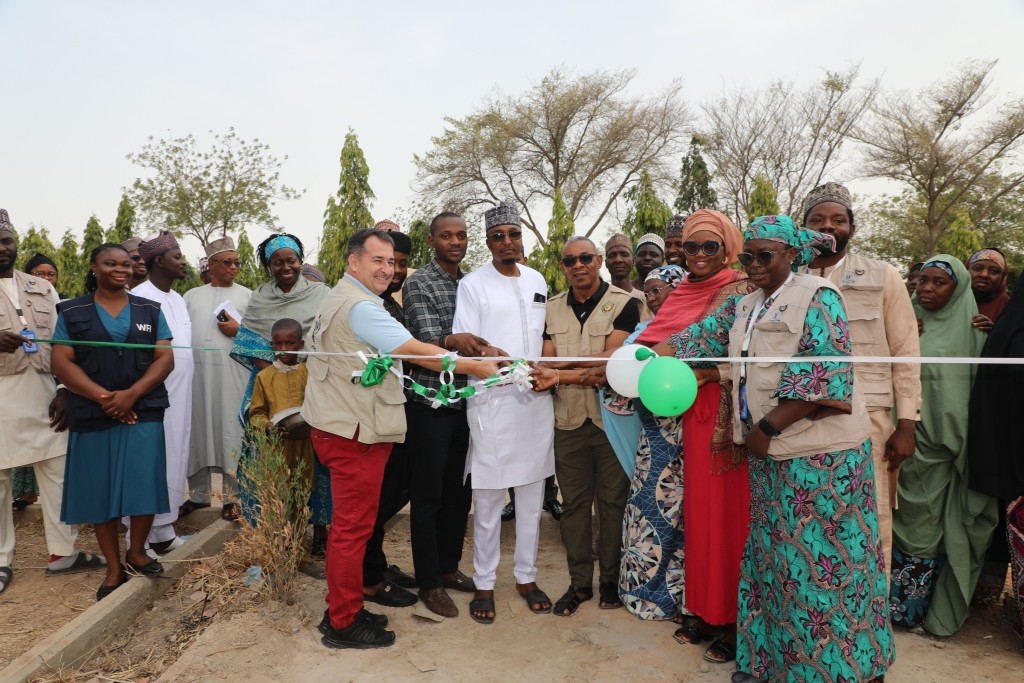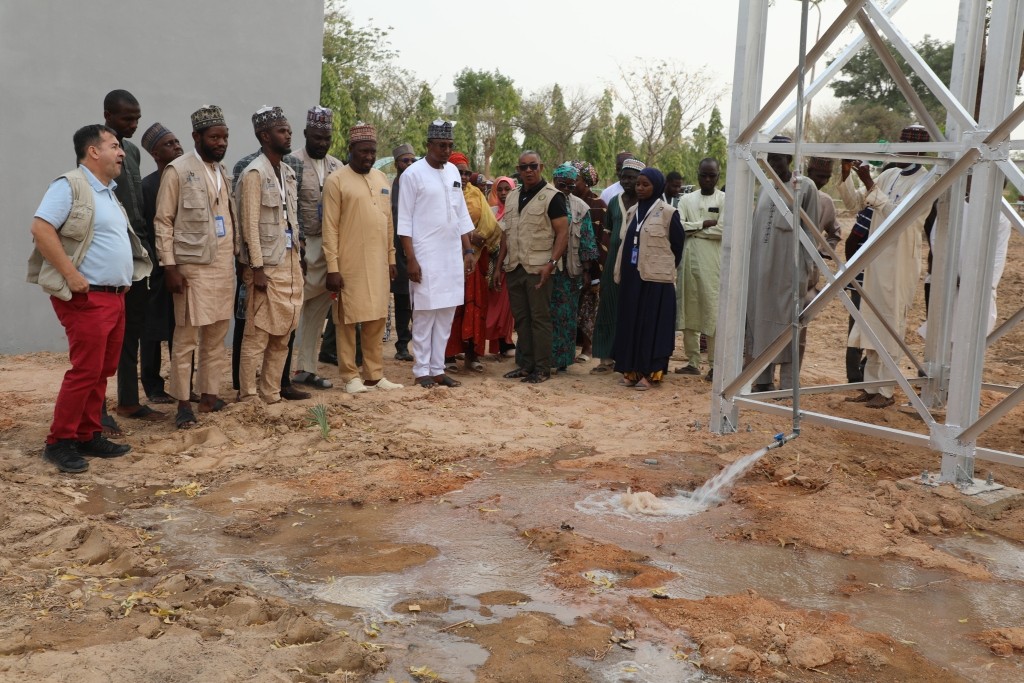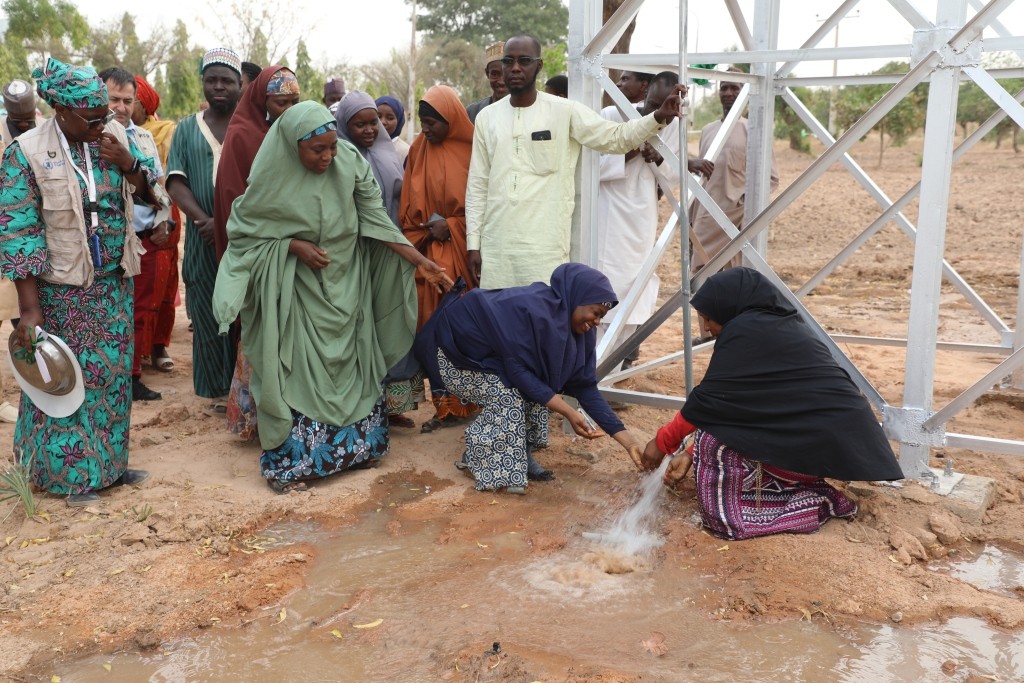ECOWAS Commission Assesses Humanitarian Response and Resilience recovery in Katsina
28 Feb, 2025A delegation from the ECOWAS Commission, led by Mr. Godfrey Alozie, alongside representatives from Nigeria’s Ministries of Humanitarian Affairs & Poverty Reduction, Foreign Affairs, the Nigerian Permanent Representative to ECOWAS, and the ECOWAS National Office, embarked on a field mission to Katsina State to evaluate and monitor the impact of the $1 million stabilization fund as 2024 humanitarian support to the affected victims of terrorism in northern Nigerian.
The ECOWAS intervention, is being implemented by the World Food Programme (WFP), seeks to alleviate poverty, combat malnutrition, and empower vulnerable groups in Nigeria’s Northwest region. Approximately 15,000 beneficiaries have received cash transfers, food supplements for pregnant and nursing mothers, and nutritional food packs for malnourished children.
Additionally, some beneficiaries were trained in vocational skills such as sewing, baking, arts and crafts, and catering, boosting their resilience and livelihood opportunities. The beneficiaries from these training programs were given a platform to showcase some of their products, such as dresses, local stoves, clay pots, and local confectioneries, all products were sold out, highlighting the success of the initiative. In addition to the ECOWAS stabilization fund, WFP provided logistical support amounting to $571,606.
Mr. Godfrey Ameachi Alozie, representing the ECOWAS Department of Social Affairs and Human Development, reaffirmed ECOWAS’s commitment to sustaining the project and extending humanitarian support to more vulnerable communities across the region.
Dr. Mudasir Nasir Bindawa, Executive Director of the Katsina State Social Investment Programme Agency (KASIPA) and State Coordinator of the ECOWAS 2023 intervention program, expressed gratitude to development partners for their efforts in addressing issues malnutrition and Since the program’s inception in August 2024, more than 7,447 beneficiaries in Katsina State have received assistance from the funds.
Furthermore, psychological training was provided to IDPs to help treat trauma, mitigate mental health issues, and improve resilience and recovery. The intervention initially focused on Katsina and Jibia Local Government Areas (LGAs), with plans underway to expand the program to seven additional LGAs across the state, Dr. Bindawa added.
The initiative has been widely lauded for its role in mitigating food insecurity, especially among women and children in conflict-affected areas, Mr. Christophe Boutonnier, National Director of WFP stated.
To enhance accountability and feedback, a Community Feedback Mechanism (CFM) center equipped with computers and other ICT tools has been established to register beneficiaries and document grievances for redress. The staff that will mount the center will be trained for 6 months on the operationality of the CFM software and data collection. A unique toll-free line will also be generated for all beneficiaries of humanitarian support in the state.
At the end of the mission a Three hectares of Communal vegetable Farmland acquired by WFP for 300 families from the Katsina State Government was officially launched. A borehole for irrigation has been installed on the farm and work is ongoing for the installation of a solar power system to power the water supply and the cold room for the storage for the vegetables.
As plans for expansion continue, stakeholders remain optimistic that more vulnerable populations will benefit from this critical humanitarian support in the coming months. Also an exit plan has been put in place to enhance the recovery and capacity of the beneficiaries when the project comes to an end.




